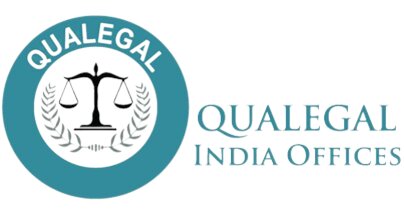Best Mining Law Lawyers in India
Share your needs with us, get contacted by law firms.
Free. Takes 2 min.
Or refine your search by selecting a city:
List of the best lawyers in India
About Mining Law in India
Mining Law in India governs the exploration, extraction, and processing of minerals throughout the country. It establishes the legal framework for the granting of mining leases, the rights and responsibilities of mining companies, and the protection of the environment and local communities. The primary legislation for mining activities is the Mines and Minerals (Development and Regulation) Act, 1957 (MMDR Act). The law aims to promote sustainable development of mineral resources while ensuring economic growth and environmental balance.
Why You May Need a Lawyer
Mining Law involves complex legal requirements that can affect individuals, businesses, and local communities. You may need a lawyer if you are:
- Seeking a mining lease or license from the government
- Negotiating contracts or joint ventures related to minerals
- Facing disputes regarding land ownership or mineral rights
- Addressing issues about environmental clearances and compliance
- Responding to regulatory actions, fines, or legal notices
- Dealing with acquisition of mineral-bearing land
- Ensuring proper compliance with safety standards and labor laws
- Representing community interests affected by mining operations
- Pursuing or defending litigation related to mining activities
Local Laws Overview
Mining activities in India are regulated through a mix of central and state laws. The major legal instruments include:
- Mines and Minerals (Development and Regulation) Act, 1957 (MMDR Act): This central act is the foundational law covering all aspects of mining for minerals other than petroleum and natural gas. It outlines the procedures for mineral concession, regulation of operations, and penalties for violations.
- Mineral Concession Rules, 1960 and Mineral Conservation and Development Rules, 2017: These sets of rules lay out specific procedures for obtaining and operating mining concessions, as well as standards for environment protection and rehabilitation.
- State Mining Policies: Each state in India has its own rules related to minor minerals, lease allocation, royalties, and local environmental requirements. Mineral rights and land acquisition often fall under state jurisdiction.
- Other Relevant Laws: Mining operations must also comply with environmental laws (such as the Environment Protection Act, 1986 and Forest Conservation Act, 1980), labor laws, the Indian Explosives Act, and the Forest Rights Act, 2006.
A strong understanding of both central and local laws is essential for effective and law-abiding mining operations in India.
Frequently Asked Questions
What is the procedure for obtaining a mining lease in India?
The process typically involves submitting an application to the relevant state government, accompanied by required documents and fees. The authority checks for land availability, environmental impact assessments, and clearance certificates before granting a lease.
Which minerals are covered under the MMDR Act?
The MMDR Act covers all minerals in India except petroleum and natural gas, which are governed by separate legislation. Examples include coal, iron ore, bauxite, limestone, and precious stones.
Can foreign companies participate in mining activities in India?
Yes, foreign companies can invest in mining through joint ventures or wholly owned subsidiaries, subject to Foreign Direct Investment (FDI) norms and sectoral caps specified by the Government of India.
What environmental clearances are required for mining?
Mining projects require clearances under the Environment Protection Act, Forest Conservation Act, and related state laws. Large-scale projects often need approval from the Ministry of Environment, Forest and Climate Change following Environmental Impact Assessment studies.
What are the key compliance requirements for mining operators?
Operators must comply with terms of their mining lease, pay royalties, maintain safety standards, protect the environment, and rehabilitate mined areas. Regular reporting to authorities and adherence to labor laws are also required.
How are royalties and taxes on mining calculated?
Royalties are usually calculated as a percentage of the value of minerals removed or sold. The rates are prescribed by the central or state government, depending on whether the mineral is classified as major or minor.
What happens if illegal mining is detected?
Authorities can seize the minerals, impose fines, suspend or cancel mining leases, and initiate criminal action against those responsible for illegal mining activities.
Can mining leases be transferred, sold, or inherited?
In many cases, mining leases can be transferred with prior consent from the granting authority, subject to meeting eligibility conditions and compliance requirements.
Are there restrictions on mining in forest or tribal areas?
Yes, mining in forest areas requires special clearances under the Forest Conservation Act. Projects affecting tribal or indigenous communities must comply with the Forest Rights Act and seek consent from local Gram Sabhas (village councils).
How can affected communities seek redressal?
Communities affected by mining operations can approach local or state authorities, the National Green Tribunal, or courts for redressal of grievances related to environmental harm, inadequate compensation, or violations of legal rights.
Additional Resources
If you are looking for more information or support regarding Mining Law in India, consider the following resources and organizations:
- Ministry of Mines, Government of India: The central regulatory body overseeing mining policy, licensing, and administration.
- Indian Bureau of Mines (IBM): Provides technical support, data on mineral resources, and monitoring of compliance with mining standards.
- State Department of Mines and Geology: Handles state-level administrative processes and dispute resolution.
- Ministry of Environment, Forest and Climate Change: Manages environmental clearances and policies for mining projects.
- National Green Tribunal (NGT): A judicial body handling environmental disputes, including those connected to mining.
Next Steps
If you require legal assistance with Mining Law in India, follow these steps:
- Identify your specific needs, such as leasing, compliance, dispute resolution, or community engagement.
- Gather all relevant documents including land records, lease agreements, notices, or correspondence from authorities.
- Consult a qualified lawyer with experience in Mining Law and related environmental and land laws.
- Prepare a list of your questions and concerns to discuss with your lawyer.
- Stay informed about updates in mining policies and regulations affecting your rights and obligations.
Legal advice tailored to your situation can help safeguard your interests and ensure compliance with the complex legal framework governing mining activities in India.
Lawzana helps you find the best lawyers and law firms in India through a curated and pre-screened list of qualified legal professionals. Our platform offers rankings and detailed profiles of attorneys and law firms, allowing you to compare based on practice areas, including Mining Law, experience, and client feedback.
Each profile includes a description of the firm's areas of practice, client reviews, team members and partners, year of establishment, spoken languages, office locations, contact information, social media presence, and any published articles or resources. Most firms on our platform speak English and are experienced in both local and international legal matters.
Get a quote from top-rated law firms in India — quickly, securely, and without unnecessary hassle.
Disclaimer:
The information provided on this page is for general informational purposes only and does not constitute legal advice. While we strive to ensure the accuracy and relevance of the content, legal information may change over time, and interpretations of the law can vary. You should always consult with a qualified legal professional for advice specific to your situation.
We disclaim all liability for actions taken or not taken based on the content of this page. If you believe any information is incorrect or outdated, please contact us, and we will review and update it where appropriate.
Browse mining law law firms by city in India
Refine your search by selecting a city.

















